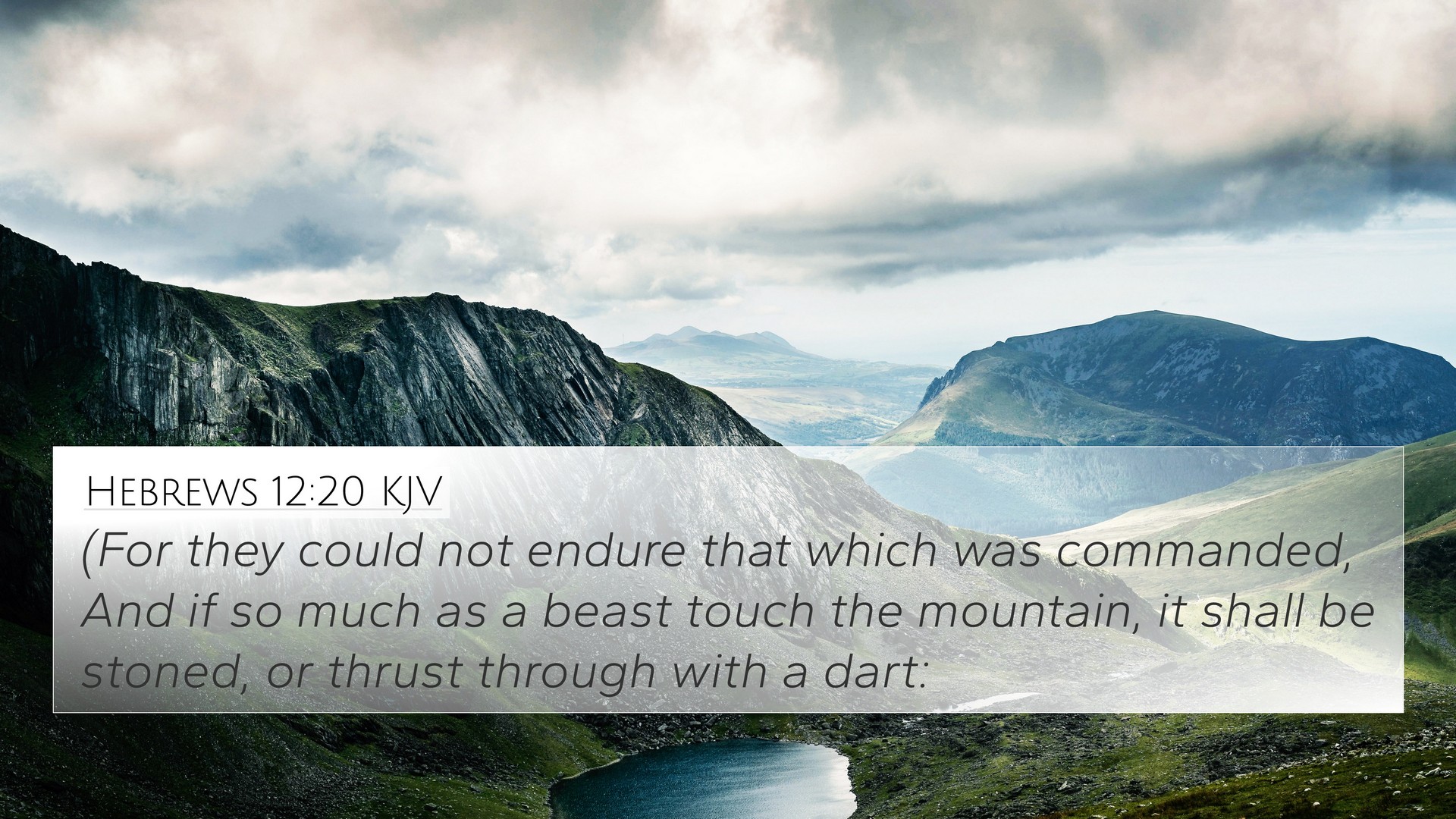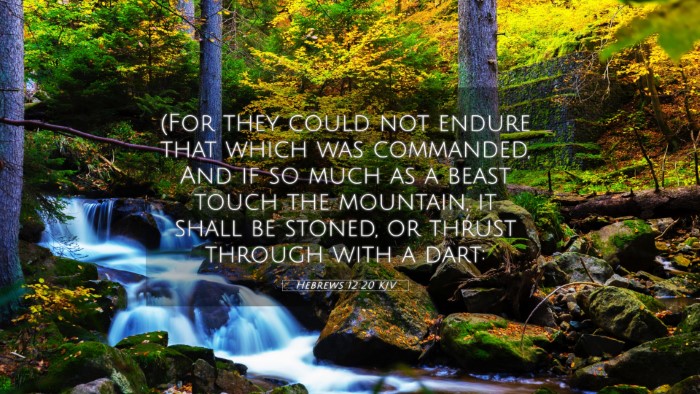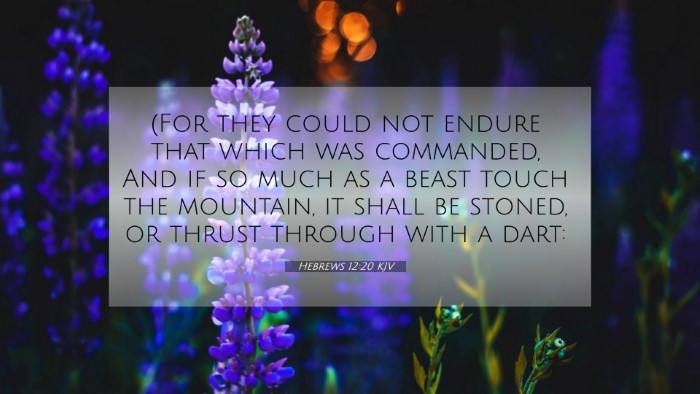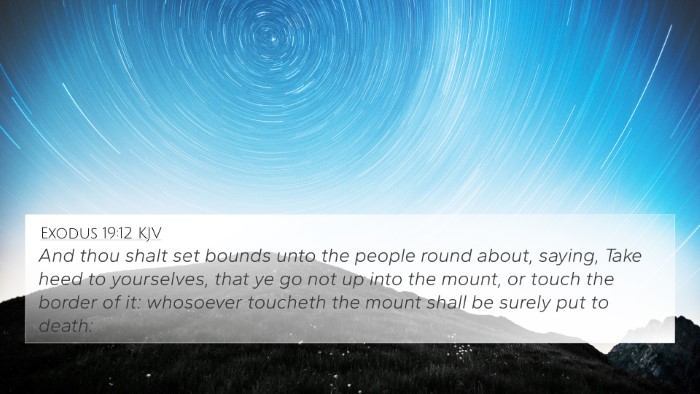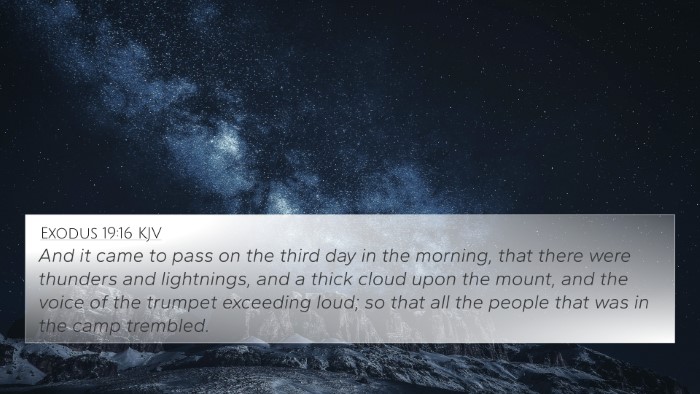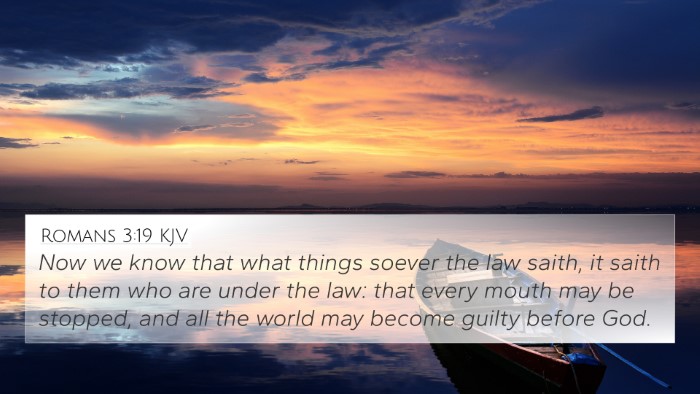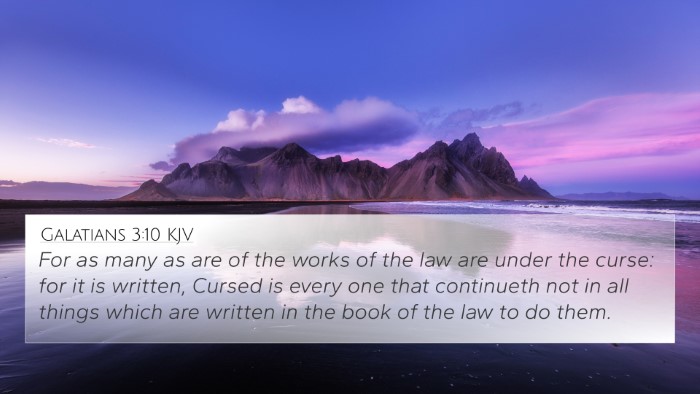Understanding Hebrews 12:20
Hebrews 12:20 states:
"For they could not endure that which was commanded, and if so much as a beast touch the mountain, it shall be stoned, or thrust through with a dart."
Summary of Meaning
This verse refers to the events at Sinai, highlighting the awe-inspiring nature of God's holiness and the serious consequences of approaching it without proper reverence. When the Israelites were given the Law, they were instructed that the mountain was to be approached with caution, as God's presence transformed the physical location into a sacred space, demanding utmost respect and fear.
Commentary Insights
- Matthew Henry: Henry emphasizes the fear instilled in the Israelites by the divine command regarding Mount Sinai. The restrictions put in place were meant to instill a sense of reverence for God's holiness, illustrating the serious nature of the relationship between God and His people. The terror associated with approaching God serves as a reminder of divine justice.
- Albert Barnes: Barnes elaborates on the concept of fear, identifying how it serves as a deterrent for sin and indicates a need for carefulness when approaching the divine. The gravity of the command indicates not just God’s majesty, but also the necessity of holiness in our relationship with Him.
- Adam Clarke: Clarke points out the metaphorical nature of the verse, implying that it not only describes physical boundaries but also the spiritual barriers between humanity and God. The extreme caution prescribed serves to contrast the new covenant's accessibility to God through Christ, emphasizing that while God is unapproachable in His holiness, He also provides a way for redemption.
Cross-References Related to Hebrews 12:20:
- Exodus 19:12-13 - Describes God's commandments regarding Mount Sinai.
- Exodus 20:18-21 - Illustrates Israel's fear at the giving of the Law.
- Hebrews 12:18-19 - Contrasts the experience at Sinai with the grace of the new covenant.
- Leviticus 10:1-3 - The consequences of irreverent behavior before God.
- Galatians 3:19 - Paul explains the purpose of the Law, showing its transient enforcement.
- Romans 8:1 - The grace available to believers contrasts with the law's demands.
- Revelation 21:27 - The holiness required for being in God’s presence is reiterated.
Thematic Connections
Hebrews 12:20 draws strong parallels to themes of divine holiness and reverence found in both the Old and New Testaments. It highlights the transition from the fear-based relationship God had with Israel to the grace offered through Jesus Christ. This transition can be explored through the concept of:
- Divine holiness as introduced at Sinai as crucial for understanding context in the New Testament.
- The significance of approaching God through the mediated grace of Christ.
- Exploring God's laws and how they are fulfilled in New Testament teachings.
Conclusion
In summary, Hebrews 12:20 serves as a powerful reminder of God's sanctity, urging believers to approach Him with both confidence and reverence, acknowledging the transformation brought forth through the new covenant. Through analyzing connections and comparative scriptures, we gain deeper insights into our relationship with God and the significance of reverence in worship.
